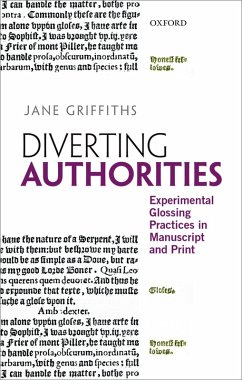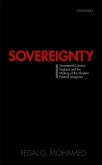Diverting Authorities examines the glossing of a variety of fifteenth- and sixteenth-century texts by authors including Lydgate, Douglas, Chaloner, Baldwin, Bullein, Harington, and Nashe. It is concerned particularly with the use of glosses as a means for authors to reflect on the process of shaping a text, and with the emergence of the gloss as a self-consciously literary form. One of the main questions it addresses is to what extent the advent of print affects glossing practices. To this end, it traces the transmission of a number of glossed texts in both manuscript and print, but also examines glossing that is integral to texts written with print production in mind. With the latter, it focuses particularly on a little-remarked but surprisingly common category of gloss: glossing that is ostentatiously playful, diverting rather than directing its readers. Setting this in the context of emerging print conventions and concerns about the stability of print, Jane Griffiths argues that---like self-glossing in manuscript---such diverting glosses shape as well as reflect contemporary ideas of authorship and authority, and are thus genuinely experimental. The book reads across medieval-renaissance and manuscript-print boundaries in order to trace the emergence of the gloss as a genre and the way in which theories of authorship are affected by the material processes of writing and transmission.
Dieser Download kann aus rechtlichen Gründen nur mit Rechnungsadresse in A, B, BG, CY, CZ, D, DK, EW, E, FIN, F, GR, HR, H, IRL, I, LT, L, LR, M, NL, PL, P, R, S, SLO, SK ausgeliefert werden.









